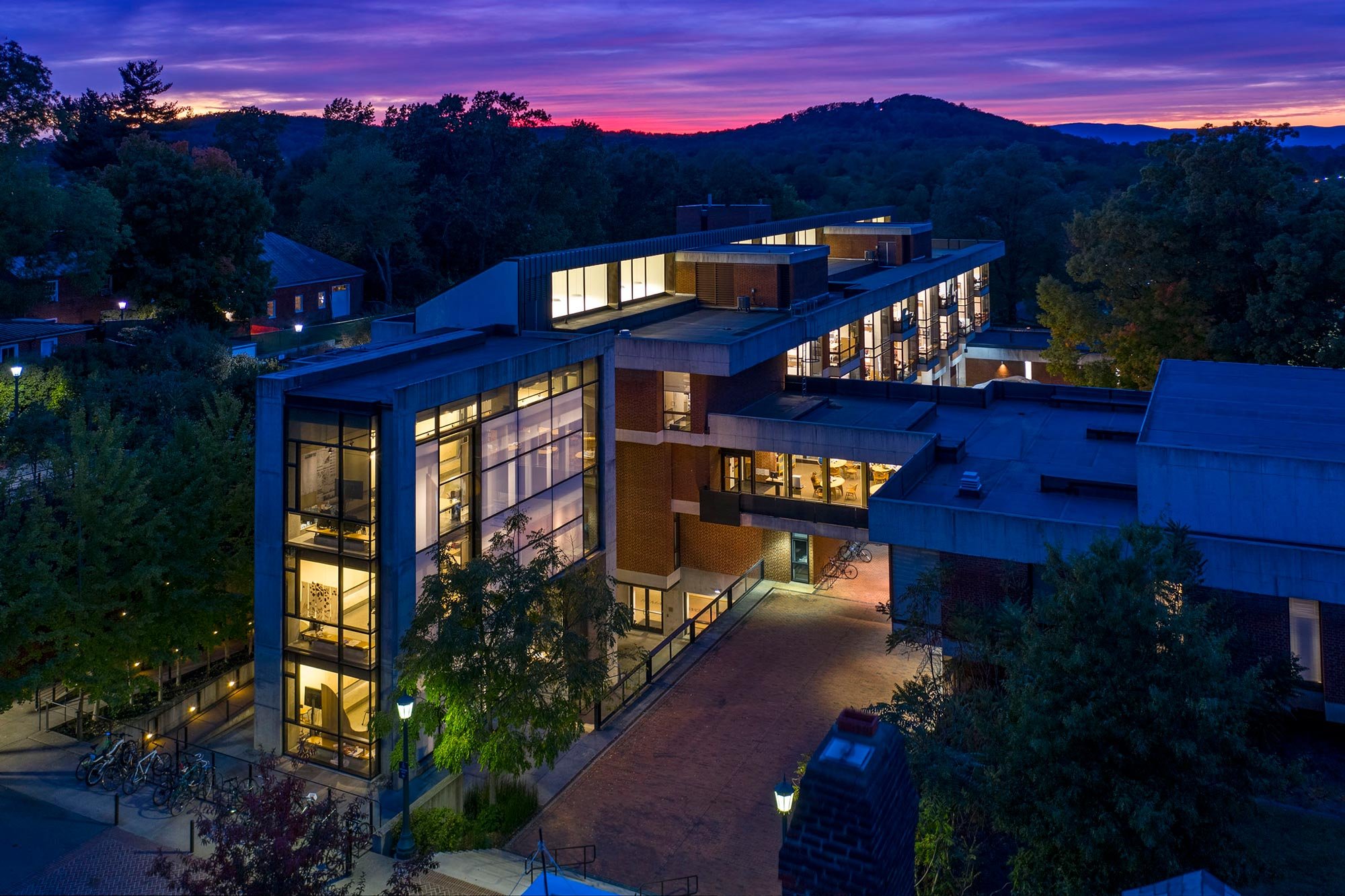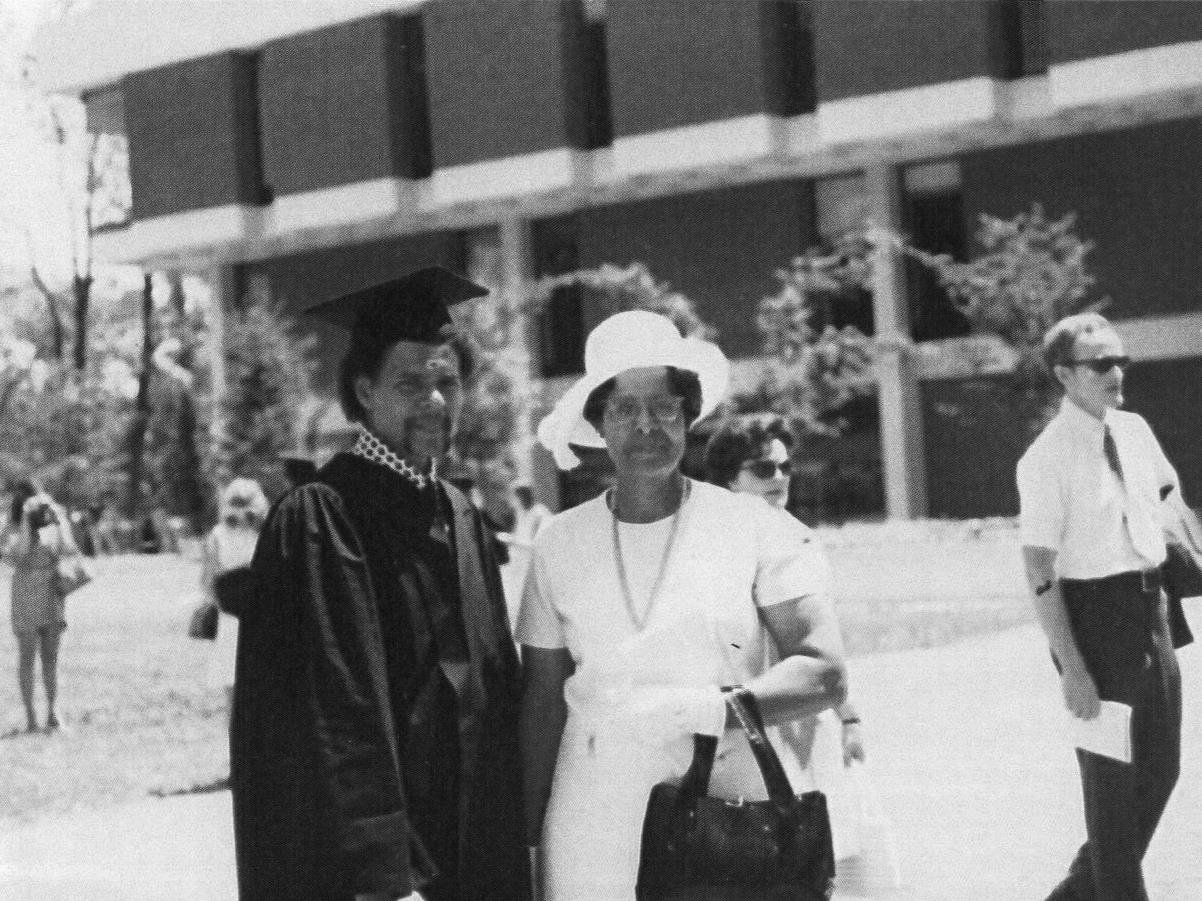
School of Architecture
Edward Wayne Barnett
Edward Wayne Barnett
Edward Wayne Barnett (1950 – 2009) was born in Botetourt County, Virginia. He attended Academy Hill and Central Academy in Fincastle, which were both all-black schools. In 1965, Mr. Barnett attended James River High School, where he went on to graduate in 1968 as salutatorian of his class. His outstanding academic achievement at a young age led the way to his enrollment at the University of Virginia where he received his undergraduate degree (Bachelor of Architecture) from the School of Architecture in 1972—making him the first African American male to be awarded this degree from the School. Mr. Barnett continued his education in architecture by receiving his master’s degree from Harvard University’s Graduate School of Design where he was named a Walter F. Bogner Scholar in Architecture.
In spring 2020, the UVA School of Architecture established a newly named scholarship focused on diversity, equity, and inclusion named in honor of Mr. Barnett. “The life and legacy of Mr. Edward Wayne Barnett stands as an exemplary model for our community at the School of Architecture. Reflecting on his achievements and the courses of action he took to overcome adversity charges us all to follow in his path, harness our interests and dreams, and realize our full potentials,” said Elgin Cleckley, Assistant Professor of Architecture and Design Thinking (BS Arch ’93), and Chair of the DEI Scholarship Committee. “These are values we can collectively aspire to—that will be cyclically strengthened by students awarded by this named scholarship. It is impactful to know that his name will be synonymous with the inclusive and equitable world we wish to achieve through our curriculum, our teaching, and the environment we create amongst our community at-large.”
“Growing up Eddie worked on a house plan for our Aunt Bessie. He was always making sketches of buildings and houses, but the one he did for Aunt Bessie stands out because she would show it when we visited her in Cleveland, Ohio or bring it with her when she visited us in Virginia,” said his sister, Judith Carolyn Barnett.
While a student in college, he worked summers at The Lone Star Cement Plant (now Roanoke Cement) in Troutville, Virginia, where Barnett’s father worked from 1950-1970.
Upon graduation, Mr. Barnett dedicated his professional life to architecture—first working for Hayes, Seay, Mattern and Mattern in Roanoke and then serving at the architect for the capital city of Accra in Ghana, through the Peace Corps. For two years, he volunteered his services in West Africa, helping to advance housing and development by strengthening the capacity of local communities. When he returned from Africa, Mr. Barnett went to work for Ellis, Ricket & Associates in Valdosta, Ga., where he became an associate at the firm. He also worked as an architect in Beckley, West Virginia and in Richmond, Virginia, prior to starting his own firm, Barnett Company. Mr. Barnett was a member of the National Organization of Minority Architects and the National Council of Architectural Registration Boards.
Judith Barnett described, “[Eddie] worked with the Gainsboro neighborhood in Roanoke and helped with renovations and additions to churches in Roanoke.
He also developed plans for the Fellowship Hall of The Lapsley Run Baptist Church in Botetourt County and worked with Lapsley Run Church members on the church addition, for which he was part o the Dedication Service. [Church leaders] have expressed to me their gratitude for the work Eddie had done for their churches and their communities.”
In addition to his dedicated career in architecture, he was an advocate for his local African American community. In 2004, Mr. Barnett, along with his sister Judith, applied for and received a Discretionary Fund Grant from the Virginia Foundation for the Humanities to help fund an important research project to build a collection of artifacts, documents, images and stories that focuses on the history of the Botetourt County African American community. The collection, titled “Finding What Has Been Lost” features schools, churches, businesses, family names, scrapbooks, yearbooks, and some prominent African American community leaders and citizens who made significant contributions, either locally or on a national level, and has since been digitized and is part of the permanent display of The Botetourt Historical Museum. in Fincastle, Virginia. Additionally, on May 20, 2010, The Roanoke Valley Preservation Foundation awarded him posthumously an education award for his efforts to preserve historic buildings and other community fixtures.
Throughout his life, Mr. Barnett was a testament to breaking boundaries imposed by society through his achievement and excellence in the discipline and practice of architecture. From a very young age, he loved putting things together: his beloved model cars and train sets, or go-carts (which he assembled out of spare lawn mower parts). His ingenuity was coupled with the great pride he took in the making process. He has said on a number of occasions, “I don’t know how I got interested in [architecture], I just remember as a kid drawing sketches of houses. It’s what I always wanted to do.”
Mr. Barnett worked in collaboration with Dr. John Kern to develop research on the noted filmmaker, Oscar Micheaux, who is regarded as the first major African American filmmaker, and who produced up to six full-length films in Roanoke between 1922 and 1925. In 2005, Mr. Barnett was invited by the Oscar Micheaux Center in Gregory, South Dakota, to attend and present at the 10th Annual “Oscar Micheaux Film and Book Festival.” He had uncovered Micheaux’s connections to Roanoke while doing research on buildings in Gainsboro, Roanoke’s traditional African American neighborhood.
Mr. Barnett held numerous leadership roles; He served on the Board of Directors of the Harrison Museum of African American Culture in Roanoke; was a member of the Roanoke Arts Commission; was a board member of the History Museum of Western Virginia at Center in the Square in Roanoke; and was on the Board of Directors of the Oliver White Hill Foundation— established in support of the next generation of social justice pioneers and engineers. Mr. Oliver White Hill, the noted civil rights attorney for whom the Foundation is named, grew up in Roanoke and appeared in one of Oscar Micheaux’s early movies, as a young boy. Through Mr. Barnett’s dedication to these, and other organizations, he helped to establish meaningful connections to—and foster awareness of—his local community, its cultures, histories, and impacts.
Sources:
For more information about the DEI Scholarship named on behalf of Mr. Barnett, visit:
https://www.arch.virginia.edu/resources/dei-scholarships
https://www.arch.virginia.edu/gallery/doc/Bio-E.W-Barnett-Mar2020.pdf


